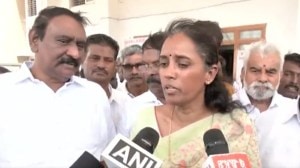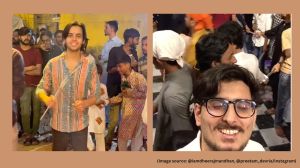Israel votes on future border
Israelis voted on Tuesday in a historic election billed as a referendum on the future of the West Bank, with the leading candidate, acting Prime Minister Ehud Olmert, promising to pull back from most of the territory and draw Israel’s final borders by 2010.

Israelis voted on Tuesday in a historic election billed as a referendum on the future of the West Bank, with the leading candidate, acting Prime Minister Ehud Olmert, promising to pull back from most of the territory and draw Israel’s final borders by 2010.
Barring an unexpected surge by hawkish parties, Israelis were expected to give a green light to Olmert’s proposal to separate from most Palestinians after 39 years of military occupation.
Israel began the “disengagement” process last summer with its withdrawal from the Gaza Strip, but Tuesday’s vote marked the first time the leading candidate has laid out a concrete vision for the future of the West Bank. “This is perhaps the most important election in all of Israel’s life,” said Mordechai Aviv, 76, of Jerusalem. “We are going to separate between us and the Arabs. This is very important for us to continue having a Jewish state.”
As Israelis voted, two people—an adult and a child—were killed in an explosion near the Gaza border. Initial reports by police and medics said the two were struck by a homemade rocket fired from Gaza by Palestinian militants. However, medics later said they two could also have been killed by ordnance lying in a field. The Islamic Jihad militant group claimed responsibility, saying the attack was timed to disrupt the Israeli election. In the past, Palestinian violence has driven Israeli voters toward hard-line parties.
Polls opened at 7 am and were to close at 10 pm, to be followed immediately by exit poll results broadcast by the three main TV stations. Final unofficial results were expected early Wednesday.
Election Day is a state holiday in Israel, where many of the 8,276 polling stations serving 4.5 million voters are set up in schools. By midmorning, turnout was about 10 per cent, the lowest for the hour since election officials started keeping score in 1973.
Security was extremely tight, with some 22,000 police and border police patrolling Israel’s frontier with the West Bank, particularly around Jerusalem. The military had sealed off the West Bank and Gaza two weeks earlier, barring all Palestinians to prevent possible attacks by militants.
Pollsters predicted that Olmert’s centrist Kadima Party, founded in November, would win the most votes, well ahead of the center-left Labor Party and the right-wing Likud. However, an unusually large number of voters said they were undecided, and pollsters said large fluctuations were possible. Success for Kadima has been defined as winning at least 35 of 120 seats in parliament.
JOSEF FEDERMAN






- 01
- 02
- 03
- 04
- 05

























